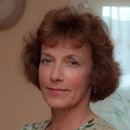Advisory Board and Editors Biochemistry

Guangdong Yang
Dr. Yang’s research focuses on a group of gasotransmitters, especially H2S, in the regulation of cellular functions and human diseases. Dr. Yang has received numerous awards and recognitions, including New Investigator award from the Heart and Stroke Foundation of Canada and Maureen Andrew Award from Heart and Stroke Foundation of Ontario. In his career, Dr. Yang has published ~100 peer-reviewed research articles, some of them published in high-impact journals, including as Science, Circulation, PNAS, and EMBO report etc. Their total citations are 7,481 (September 24, 2018).

Nasim Ahmad Yasin
Dr. Nasim Ahmad Yasin is a Associate Professor at the University of the Punjab carrying out research in the field of Horticulture and Environmental Science.
Educational background:
2021-2022: Post-Doctorate: Vegetable Research Institute, Guangdong Academy of Agricultural Sciences, China.
2015: PhD: Institute of Agricultural Sciences: University of the Punjab Lahore.
1997: MSc. (Hon): University College of Agriculture, Rawalakot: The University of Azad Jammu and Kashmir –Muzaffarabad Azad Kashmir.
1995: BSc. (Hon): Barani Agriculture College, Rawalpindi. University of Agriculture, Faisalabad.

Humaira Yasmin
Dr Humaira Yasmin is tenured Associate professor (TTS) within the Department of Biosciences, COMSATS University, Islamabad, Pakistan. Her research interests include plant-microbe interactions, plant stress physiology, biofertilizers technology, soil microbiology, crop pathology, plant protection, plant biochemistry and molecular biology, medicinal plants, environmental microbiology, and agricultural nanotechnology. Dr Yasmin's research focuses on understanding the detailed biochemical mechanisms adapted by crops when exposed to biotic (fungal/ bacterial) pathogens, abiotic stresses (drought, salinity, heavy metals and heat). She is also investigating various eco-friendly and economic solutions to reduce the adverse impacts of environmental stresses on economically important crops. The techniques studied include isolation, characterization and mode of action of plant growth-promoting rhizobacteria (PGPR). Green synthesis and characterization of nanoparticles from medicinal plants and their application in agriculture to alleviate different stresses. Application of growth regulators (hormones (GA, ABA, SA, BS etc.), chelators (Oxalic acid, mellic acid etc.) and other chemical compounds to increase plant protection. Moreover, synergistic effects of the above mentioned solutions are also under consideration.

Xiaodong Zhang
Xiaodong Zhang graduated from Peking University in 1988, majoring in Nuclear Physics. She then went to Stony Brook University to pursue her PhD in Physics in the group of Professor Janos Kirz . After her PhD in 1995, she went to Harvard University for her postdoctoral training in X-ray crystallography under the guidance of Professor Don Wiley. She took up a lecturership at Imperial College London in 2001. She was promoted to Professor of Macromolecular Structure and Function in 2008. Her current research focuses on elucidating the structures and molecular mechanisms of macromolecular machines, especially those involved in DNA processing including the transcription apparatus and its regulators, components in DNA damage signaling and repair.

Natalia V. Zhukova
Since 2009 to present time Leading Researcher of the Laboratory of Comparative Biochemistry, National Scientific Center of Marine Biology, Far East Branch of the Russian Academy of Sciences and Far Eastern Federal University.
1992-2009, Senior Researcher
1987-1992, Researcher
1980-1987, Junior Researcher
1978-1980, Probationer Researcher

